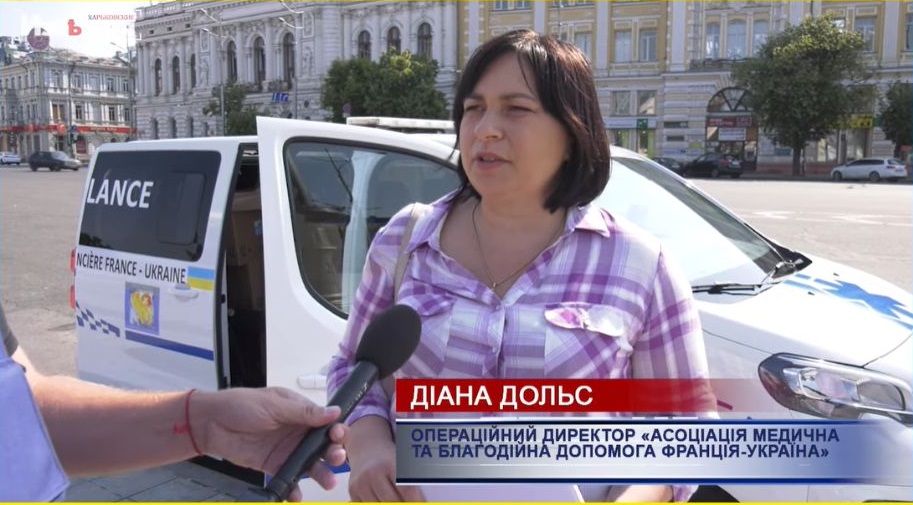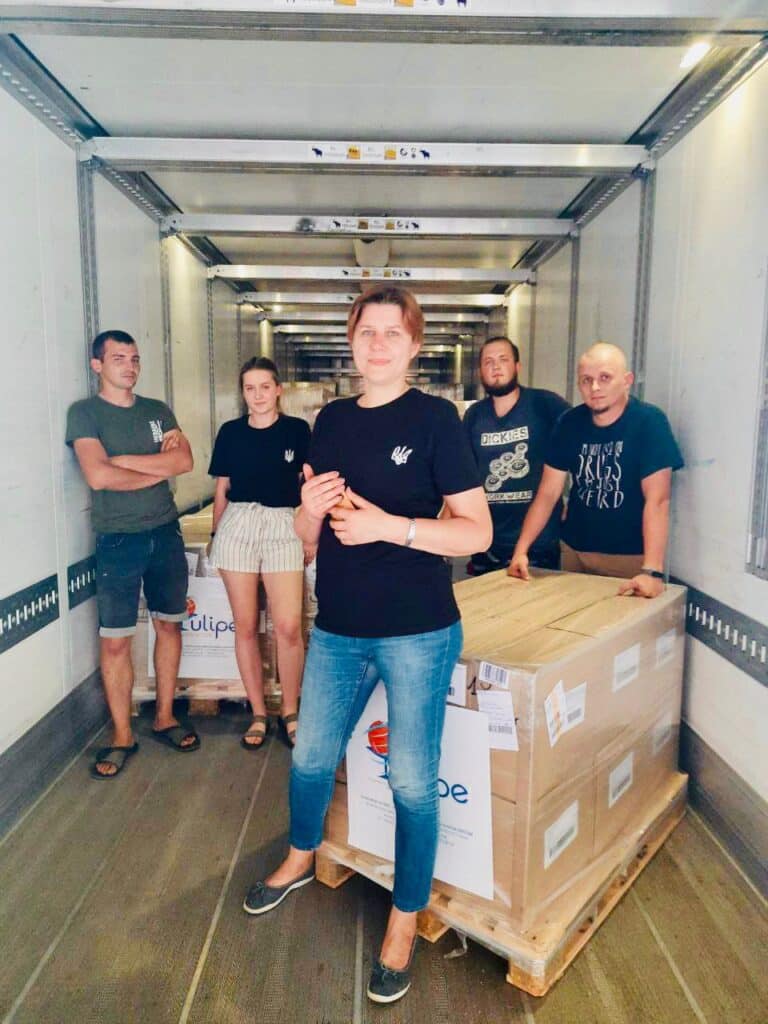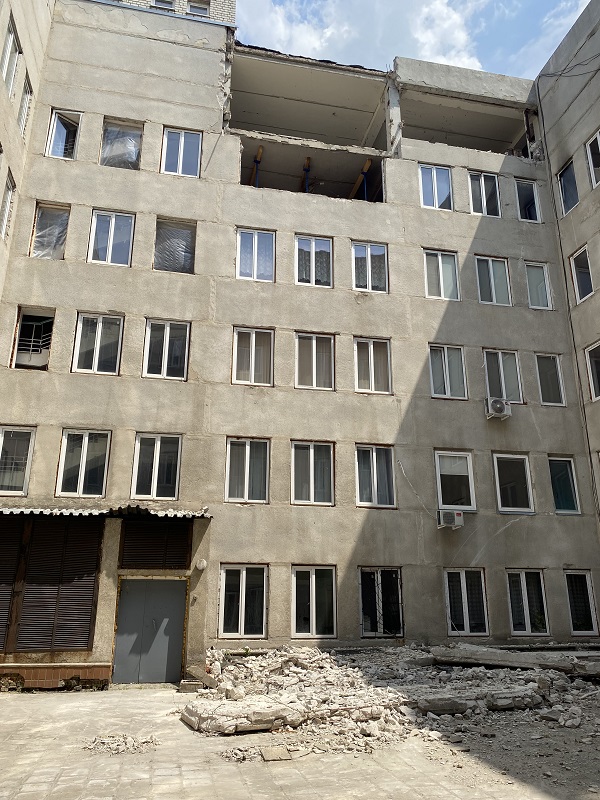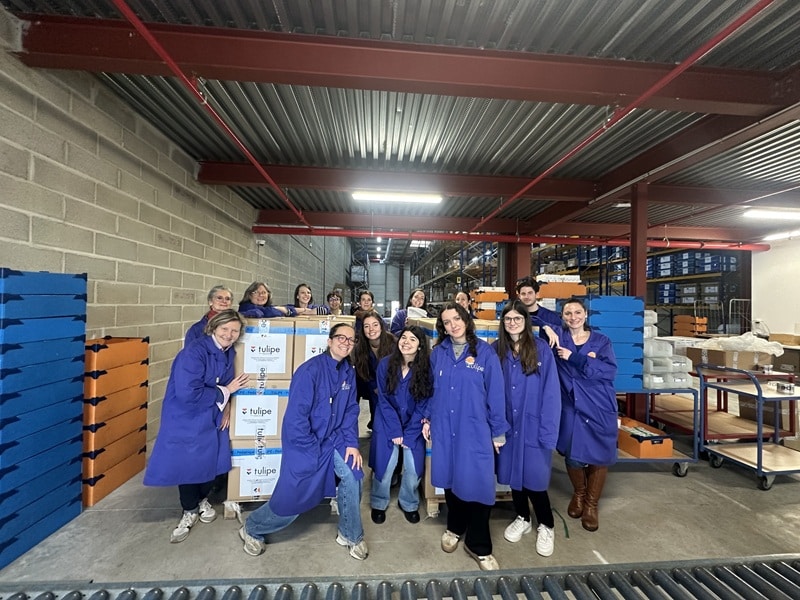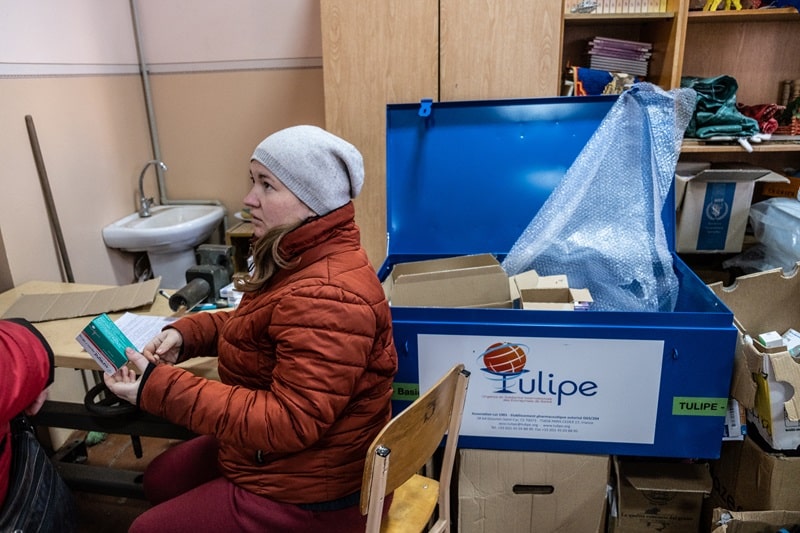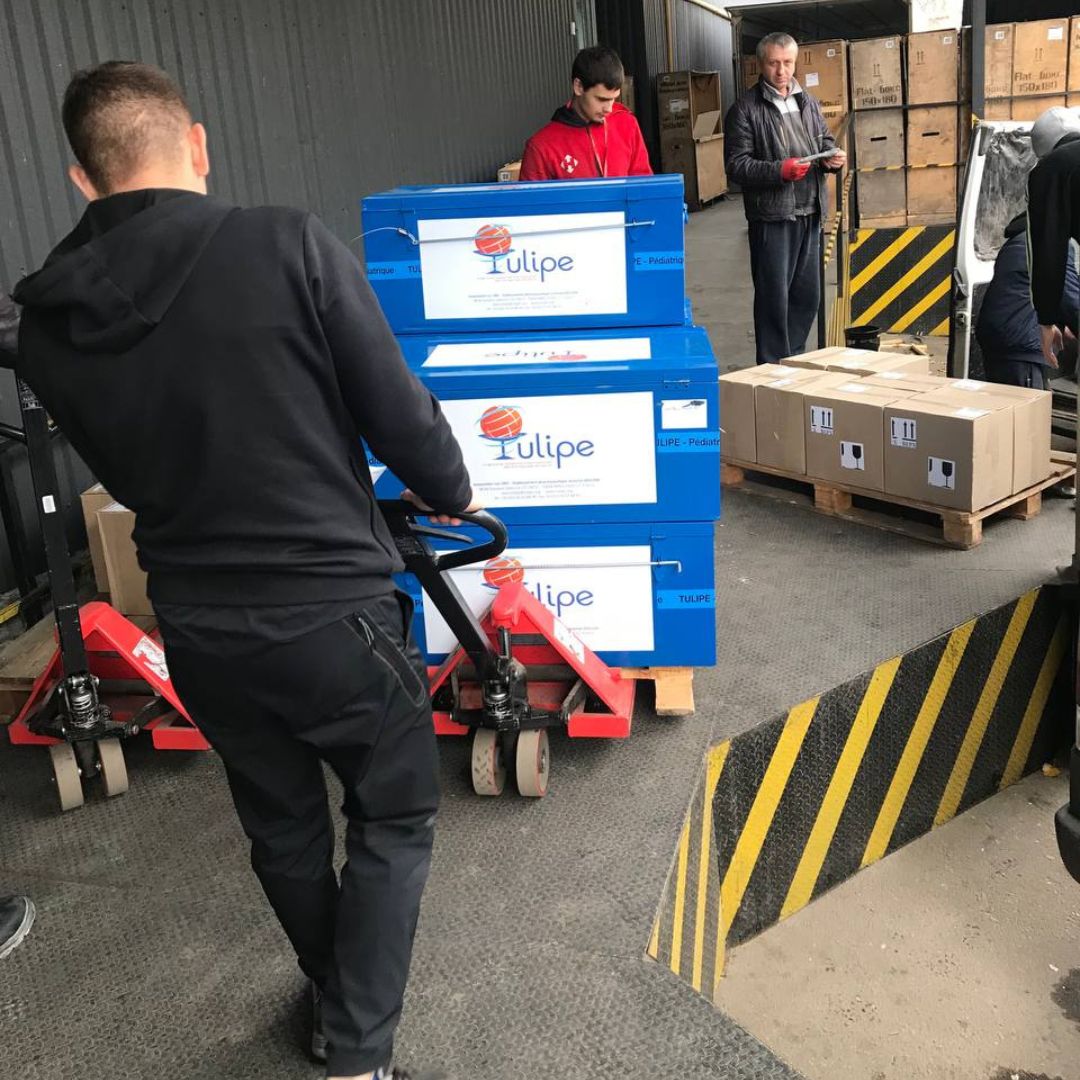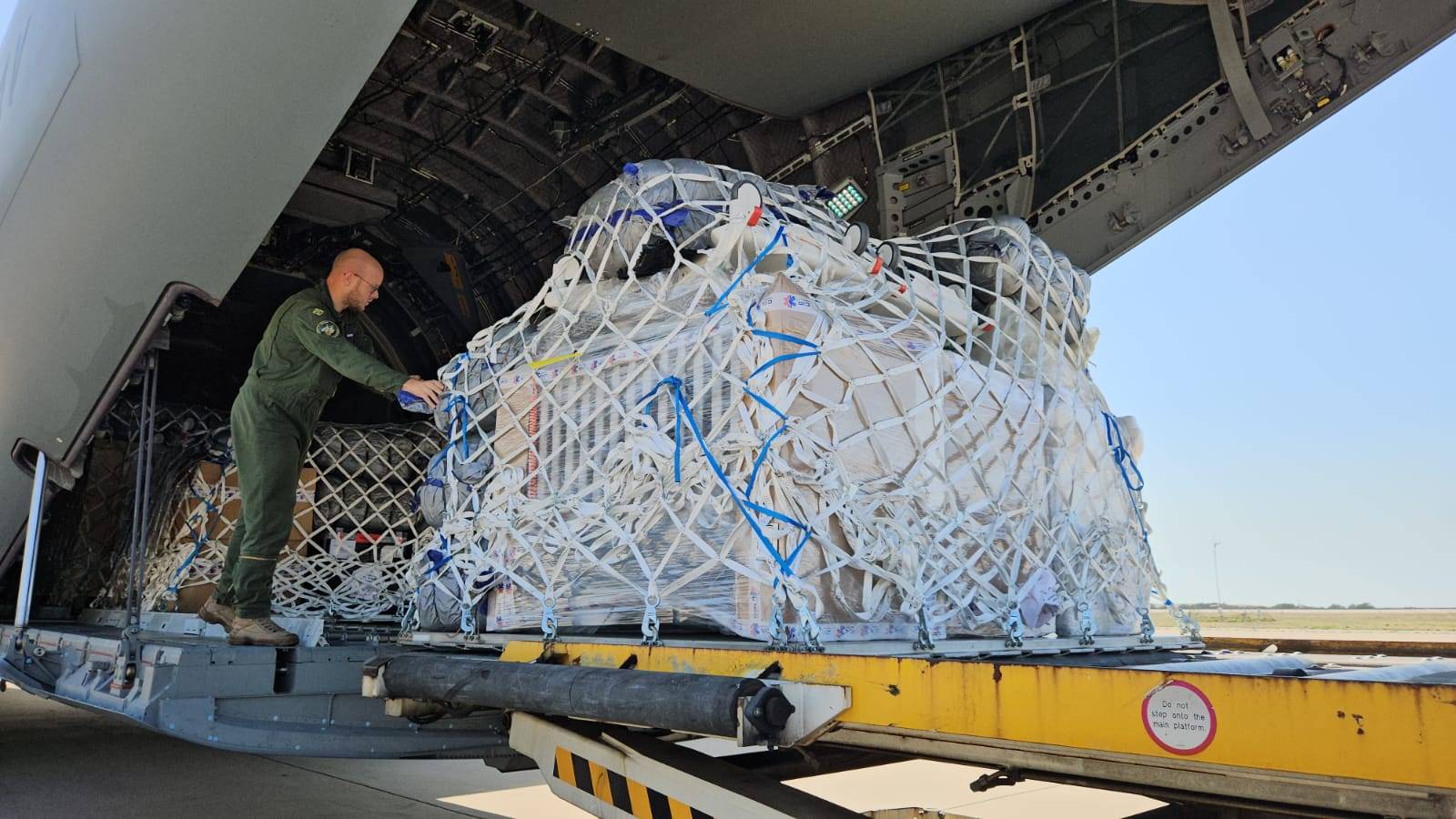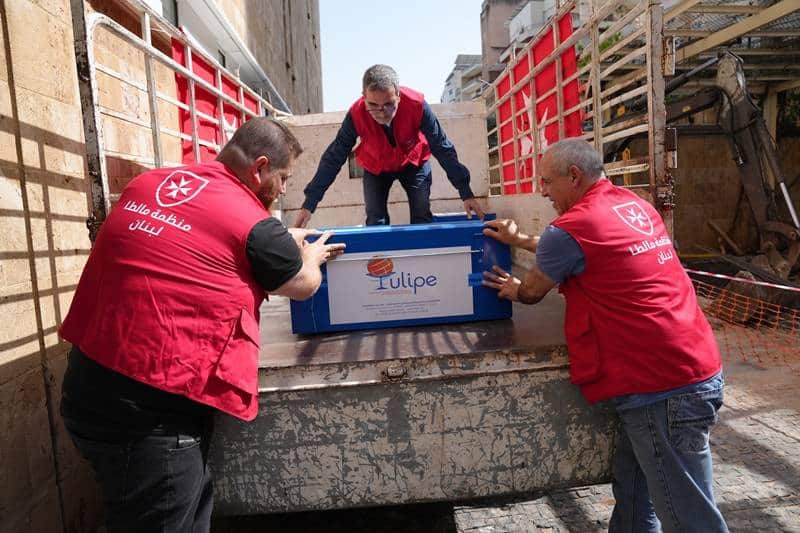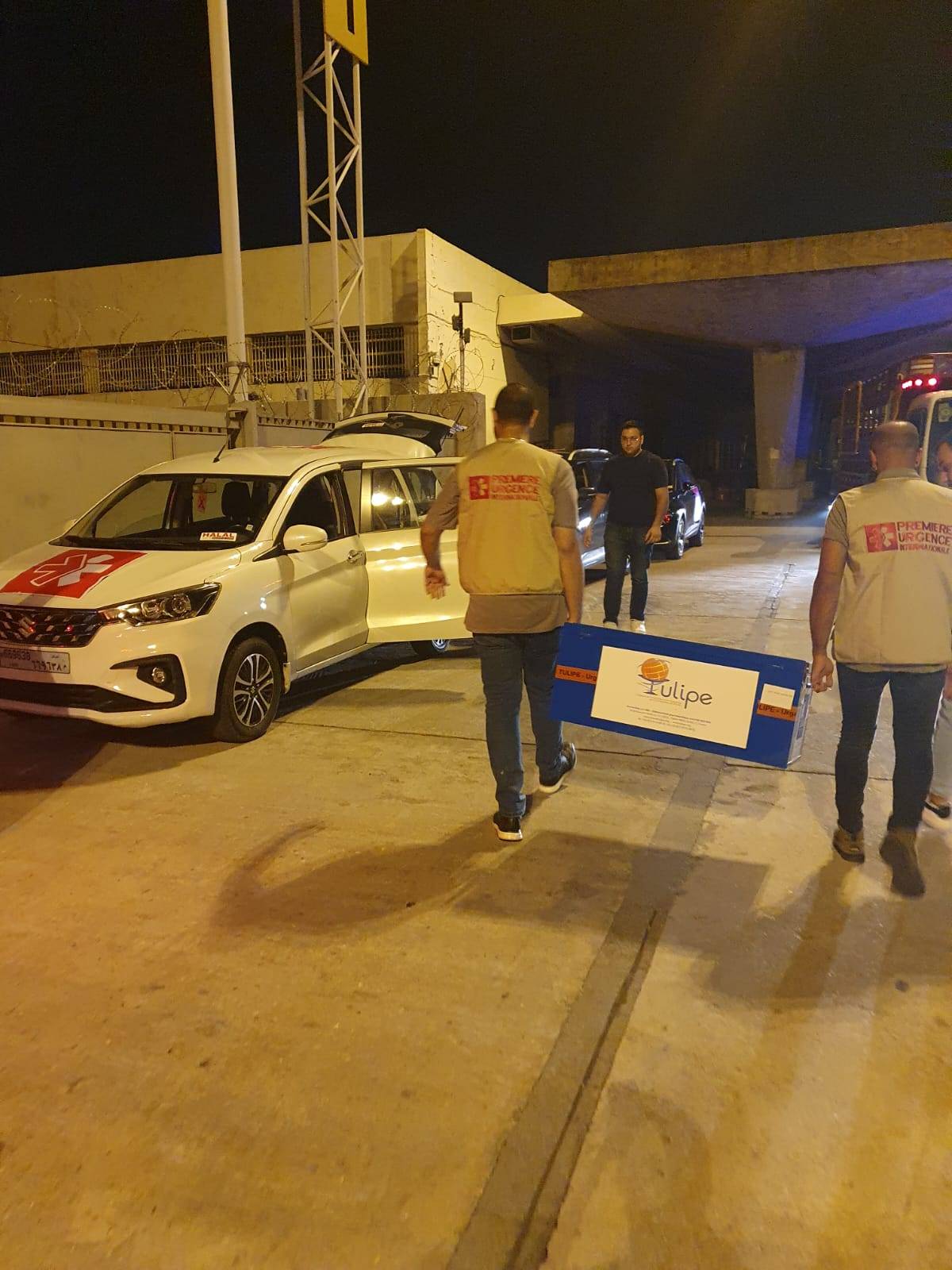A lorry containing 33 pallets of health products, donated by the Tulipe association and its member health companies, set off on 21 July 2022 for Kharkiv in the north-east of Ukraine. The shipment of healthcare products is destined for the city’s hospitals and includes pallets of antispasmodics, clinical food supplements, anticoagulants and sterile compresses. The donation was paid for by Aide Médicale et Caritative France-Ukraine (AMCFU). We spoke to Diana Dols, its Director of Humanitarian Operations.
The majority of this donation is destined for hospitals in the city of Kharkiv, some of which are run by the municipal authorities. It is these authorities who coordinate the needs and the redistribution of medical aid to the hospitals. The city, its infrastructure and sometimes even its hospitals have been under constant bombardment since the start of the invasion. According to a report by the NGO Luhansk Regional Human Rights Centre “Alternative”, many hospitals and medical establishments have been hit by Russian fire, including the Kharkiv regional oncology centre, the city hospital and the children’s hospital, which was severely damaged on 12 April.
Diana Dols, Director of Humanitarian Operations, Aide Médicale et Caritative France-Ukraine (AMCFU)
Medical facilities targeted by the Russians
In the Kharkiv region alone, the NGO recorded twelve direct attacks or collateral damage between 24 February and 31 May. On 21 July, another Russian attack killed two people, including a 13-year-old teenager, and injured around twenty others. “A lot of infrastructure has been destroyed. Despite this, many people are still living in the area. We were approached directly by the town of Kharkiv, which still has major humanitarian aid needs. Before this shipment, we had already transported humanitarian aid there on several truck journeys”, explains Diana Dols. Before the invasion, Kharkiv, Ukraine’s second largest city and the administrative capital of Kharkiv oblast, was “a thriving university and industrial centre. Today, its inhabitants are living in anguish”, adds AMCFU’s Director of Humanitarian Operations, referring to the city, which had a population of 1,421,125 on 1ᵉʳ January 2022.
Arrival of the Tulipe donation on 26 July. Nearly 80 tonnes of medicines have been donated to Ukraine by the Tulipe association and its member healthcare companies since the beginning of the conflict.
Health products: collaboration with the Tulipe association since the beginning of the war in Ukraine
The Aide Médicale et Caritative France-Ukraine association has been working with Tulipe since the start of the Russian invasion on 24 February. “We have been providing medical aid from the outset, so working with Tulipe was a natural step. Following the invasion, we reorganised our convoys by dedicating them to emergency aid, as hospitals had become very dependent on humanitarian aid”, explains Diana Dols. The NGO is relentless in its ongoing work in Ukraine. This work began in 2014, during the Maïdan events and the clashes in the Donbass region. Since then, the Aide Médicale et Caritative France-Ukraine (AMCFU) association has been organising a medical and humanitarian solidarity network between France and Ukraine.
256 confirmed attacks on health establishments. 262 children died and 415 were injured as a result of the Russian attack
Hospitals in need of medicines, equipment and financial donations
“Since the beginning of the war, we have had 10,000 donors, all donations taken together, and we have intervened everywhere in Ukraine, except in Marioupol, where access was unfortunately cut off as soon as the Russian offensive began”, explains Diana Dols. It is these contacts on the ground that enable the NGO to monitor trends in humanitarian needs, trends that are changing because of the great instability in the country: “We need medicines, portable hospital equipment, diagnostic equipment and means of transport, including ambulances adapted for people with reduced mobility. This will enable us to evacuate vulnerable people from the combat zones. We also need financial donations”, she continues. Since the start of the conflict, the WHO has recorded nearly 256 confirmed attacks on health facilities. 262 children have died and 415 have been injured as a result of the Russian attack.
The AMCFU currently needs five diesel city buses with wide doors and no floor for stretchers. The hospitals will equip the buses with beds and stretchers. Another need is for city buses to transport residents (public transport in some towns has been badly damaged).
